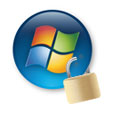 With news swirling that Google is ditching the internal use of Windows over security concerns, Microsoft moved swiftly to counter-attack and defend the security posture of its flagship operating system.
With news swirling that Google is ditching the internal use of Windows over security concerns, Microsoft moved swiftly to counter-attack and defend the security posture of its flagship operating system.
Even as security experts questioned the wisdom of such a drastic Google move, Microsoft’s Brandon LeBlanc found irony in the issue, pointing to a report that Yale University had halted their move to Gmail (and their move to Google’s Google Apps for Education package) citing both security and privacy concerns.
Here’s LeBlanc on the Windows security posture:
When it comes to security, even hackers admit we’re doing a better job making our products more secure than anyone else. And it’s not just the hackers; third party influentials and industry leaders like Cisco tell us regularly that our focus and investment continues to surpass others….Microsoft makes the security of our customers a huge priority.
LeBlanc also posted a list of Windows security highlights:
- We ship software and security updates to our customers as soon as possible through Windows Update and Microsoft Update to keep our customers safe. We highly recommend our customers enable Automatic Update to ensure they are protected from attacks.
- With Windows 7, we added improvements to BitLocker for disc encryption (we also introduced BitLocker-to-Go for external USB devices), and added enhancements to the built in Windows Firewall for better protection.
- Windows 7 has Parental Controls built in that can be combined with Windows Live Family Safety to create a safer experience on the PC for children.Windows 7 comes with Internet Explorer 8 which includes SmartScreen Filter which has proven its success time and time again.
- And Windows 7 also uses Address Space Layout Randomization (ASLR) as well by randomizing data in memory.









